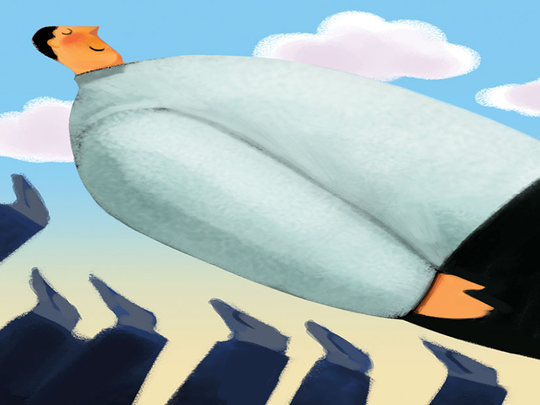
Ask anyone to name the best team they have ever been on and they usually nod. Our entire lives are surrounded by groups of people, from two to 20 in number, working or living together in pursuit of a given objective, be it a board of directors, senior management team, sales team, sports team, expedition team or simply a relationship. And almost everyone will be able to name the best team, sometimes a few, they have had the pleasure of being part of.
Just as they will be able to name the worst team they have been in.
Ask them to then discuss why that team was so special and, after a pause, people will recognise and name the attributes that created it.
Clear Objectives. Great Leader. Trust. Challenge. Successful. Communication. Support. Honesty, Transparency. Clear Responsibilities. Respect, Democracy. Fun. Resources. Leveraging Strengths. Camaraderie.
And probably another 40 more. We all know what makes a great team — and what makes a bad team.
Ask them to suggest who is responsible for making that great team and some will say “The Leader”. Most will say it is everyone’s duty. In truth it is both the leader and everyone’s responsibility.
In short, we all know what makes a great team and we all know that it is our responsibility to create a great team, so how do we get there? Silence. In 95 per cent of teams I train or coach, nothing happens in any shape or form throughout an entire year.
We are all too busy or simply don’t have the knowledge and skills to make it happen. Until, with the annual two-day company off-site fast approaching, someone suggests “Let’s do a teambuilding day!”
Highly effective
Thus, amid presentations and speeches on last year’s results, technical updates, divisional performances, strategy and next year’s targets, the entire company will trot off, probably dressing up at the same time, for a typical teambuilding day of crossing a gap with a barrel and two planks of wood; building a structure out of cardboard, paper and balloons; or doing some mock SAS combat course.
All in the expectation of it helping them to become a highly effective team.
I want to be clear about such typical teambuilding days. They are usually extremely well-organised events run by some good companies. They will give employees great enjoyment and fun.
There is definitely a place for them in the corporate calendar. But take a look back at the list in paragraph 2 of what people think makes a great team. And then ask yourself, in all honesty, what attributes such a day will provide off of that list.
The answer is fun. Some camaraderie. And that is about it. But whilst fun is a key component of any team, it is only one of 50 such components. Alone, it will not create a team that achieves results.
Great teams such as the New Zealand All Blacks, don’t reach such elated levels by building a raft to cross a swimming pool, playing tenpin bowling or performing on stage dressed as X Factor wannabes.
They may enjoy these things, yes, but only after they have devoted hour after hour, after day, after week, after month, after year, after years of activities, actions and experiences devoted entirely to making them achieve results — training, practice, drills and actions firstly; communication, personal, team and leadership development work secondly.
That is what makes a great team. And, yet, 95 per cent of teams in our corporations have got the entire world of teamwork completely wrong, thinking that a once a year fun-based teambuilding day will achieve the same result.
Tools and techniques
Team coaching programmes are entirely different to teambuilding days and use the same communication and development lessons, studies, models, concepts, mantras, exercises, experiential work, tools and techniques at regular intervals throughout a year.
No one is under any illusion that any corporate team can become the All Blacks, but in such changing, uncertain and ultra-competitive times, the performance of a company’s teams will largely dictate that company’s fortunes. An ongoing team development and team coaching programme, is the only way any company can hope to create that level of performance and results.
I have used exactly the same lessons, tools and techniques in all of my expedition teams of recent years. For the stark truth is that, no matter how good I might think I am, I am utterly dependent on the team around me to achieve the goal we have set.
And I have learnt from painful experience, that if we don’t do the real teamwork needed, chaos and crisis can result. Get teamwork wrong in a corporation and you will may get misunderstandings, misalignment or friction — which may lead to lost sales, market share and profits.
Get it wrong on an expedition and people lose their lives. It’s as profound as that. This won’t happen in a company but the tools, techniques and work of team coaching and development in creating a supportive, bonded, high performing and successful team is exactly the same.
Being part of a great team is one of the most rewarding experiences in our lives. But it takes work to get there ...
The writer is a British adventurer, keynote speaker, leadership, team and executive coach, campaigner and author.












